
Shrubs Around Las Vegas, Vegetation Around Las Vegas
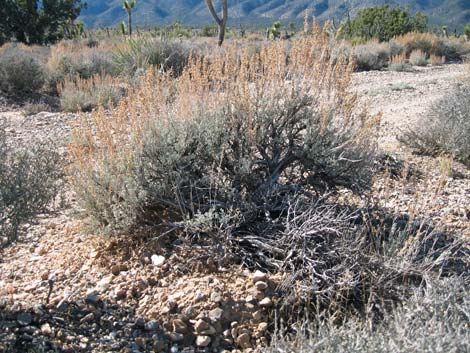 Wyoming Big Sagebrush |
General: Big Sagebrush (Artemisia tridentata) is a fairly large, upright, brushy shrub with upright stems and blue green leaves divided into three lobes at the tip. Flowerheads are small and borne along the upper stem. Big Sagebrush is one of the dominant shrub species in the Great Basin Desert, and it extends into the Mojave Desert at higher elevations and is a fairly common component of mountain communities in drier areas in the Upper Sonoran (Pinyon-Juniper Woodland), Transition (Yellow Pine), and Canadian (Pine-Fir Forest) life zones. There are three subspecies of Big Sagebrush. Wyoming Big Sagebrush is our standard sagebrush of big, open valleys with a rounded top. Basin Big Sagebrush is a very tall plant of fertile soils with a distinct trunk, and Mountain Big Sagebrush of higher elevations is smaller with a flattish top. Rather than typical subspecies, which usually reflect geographically distinct subsets of a species, these subspecies are more like eco-types, where one grows in valleys, another grows in the same valleys, but where there is more water, and the third grows on the hilltops overlooking the valleys, except where there is more water and the other grows. Pollinators usually can fly from one type to another, but most pollination is done by the wind. In this way, they all seem to grow together in the same general area, but with slightly different habitat preferences. Of the three, Mountain Big Sagebrush is most geographically distinct. |
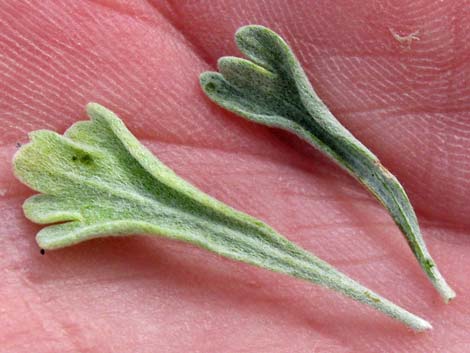 Big Sagebrush lower leaves |
Family: Sunflower (Asteraceae). Other Names: Sagebrush. Plant Form: Upright, brushy shrub with flowering stems held above the shrubbery. Height: Wyoming Big Sagebrush to about 4 feet, Basin Big Sagebrush usually to about 8 feet (max 16 ft), and Mountain Big Sagebrush usually to about 3 feet. Stems: Upright. Leaves: Upper and lower leaves different. Lower leaves 1/2 to 2 inches, wedge-shaped with 3 lobes at the tip, densely hairy, which gives them a gray-green appearance. Lower leaves often in axillary clusters. Upper leaves (leaves on flowering stems) shorter, elongate, and not clustered, usually without lobed tips. Leaves remain on the plant during winter. |
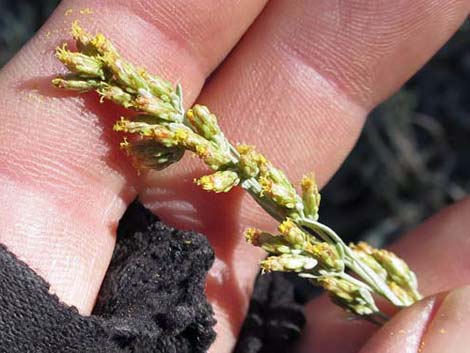 Big Sagebrush flowers |
Flowers: Blooms during summer. Inflorescence: flowerheads along about 5-7 inches of stem, held close to stem. Flowerheads very small; individual flowers tiny. Flowers primarily are self- and wind-pollinated, but many insects visit these plants. Seeds: Habitat: Middle elevation valleys into the mountains. Elevation: Usually above 6,000 to tree line, but occurs at lower elevations in places like Lost Creek, Pine Creek, and other canyons along the Red Rocks cliffs. Distribution: Western North America. Comments: There are three subspecies of Big Sagebrush in Nevada: -- Wyoming Sage (A. t. spp. wyomingensis). Rounded top, dry basin habitat |
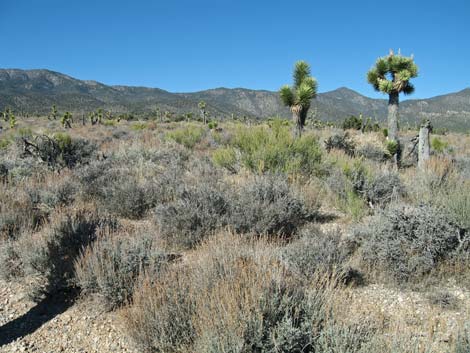 |
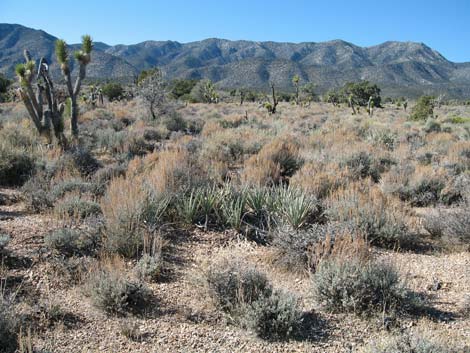 |
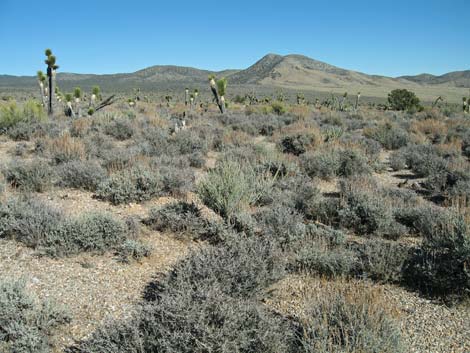 |
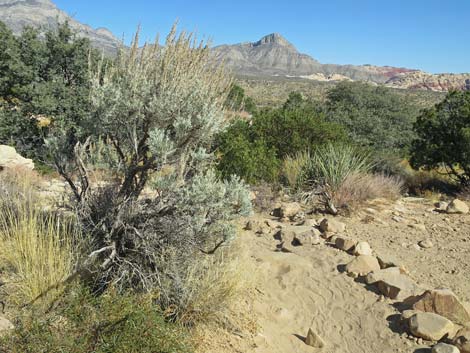 |
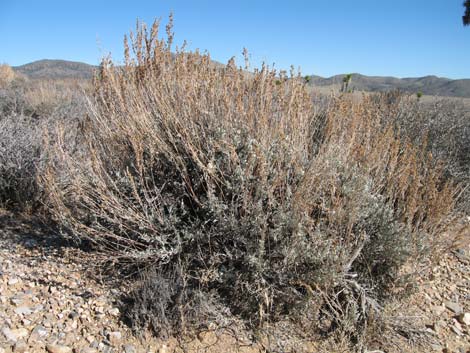 |
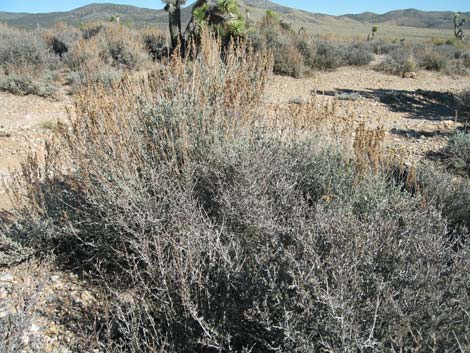 |
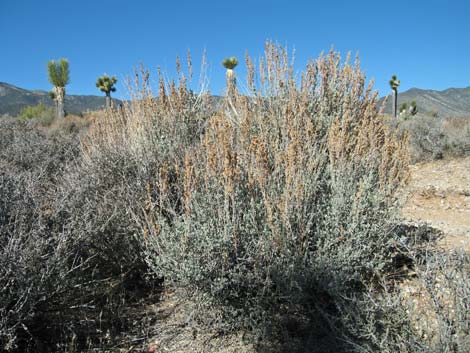 |
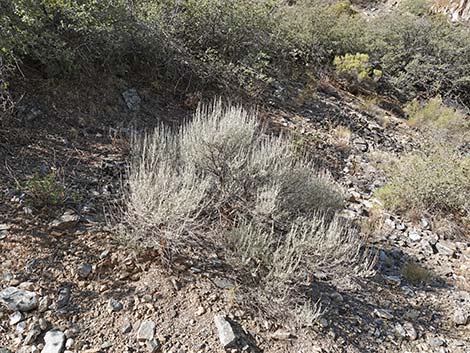 |
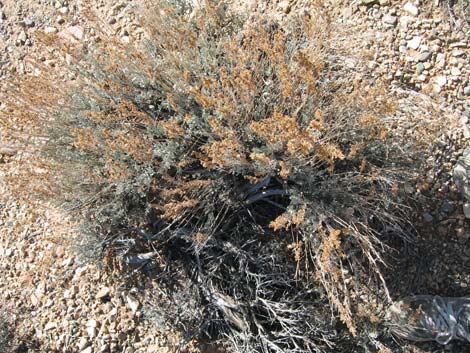 |
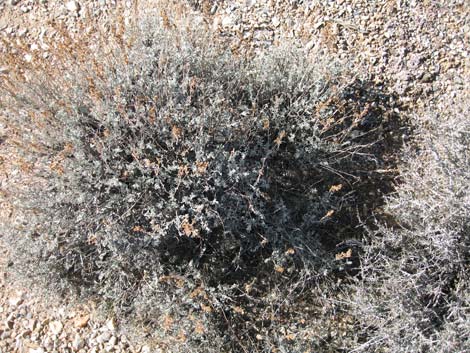 |
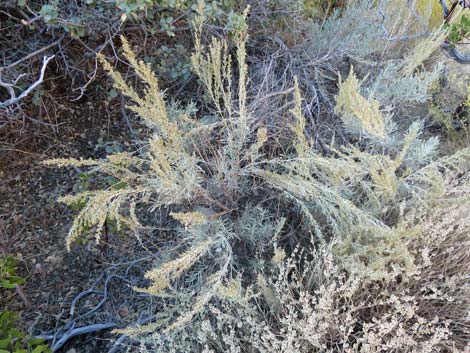 During winter, the flower stalks can get knocked over |
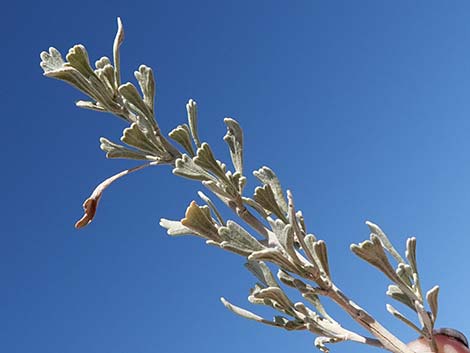 Big sagebrush leaves are elongate with 3-lobed tips |
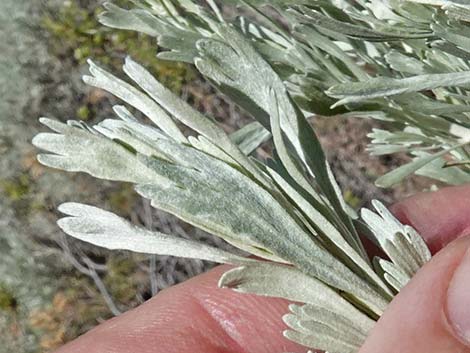 Big sagebrush leaves are elongate with 3-lobed tips |
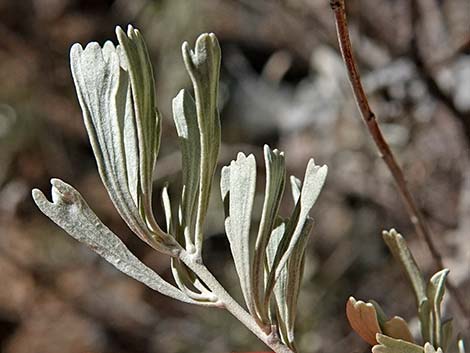 Big sagebrush leaves are elongate with 3-lobed tips |
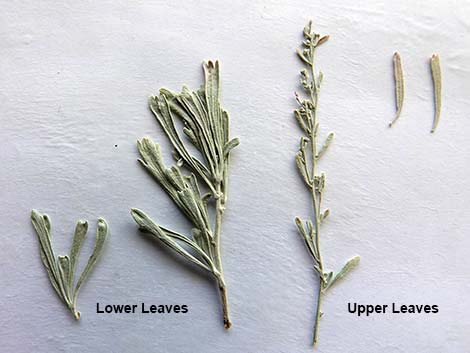 Big Sagebrush upper and lower leaves |
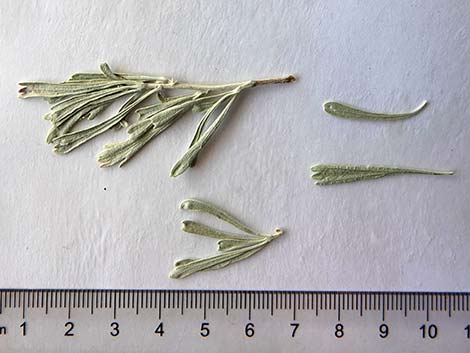 Big Sagebrush lower leaves |
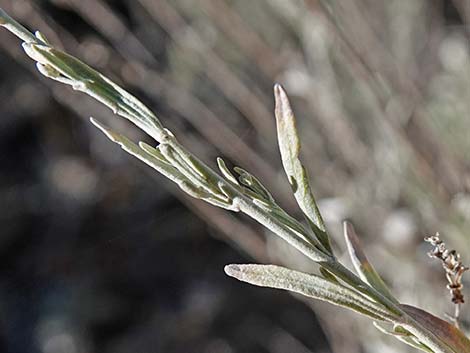 Big Sagebrush upper leaves |
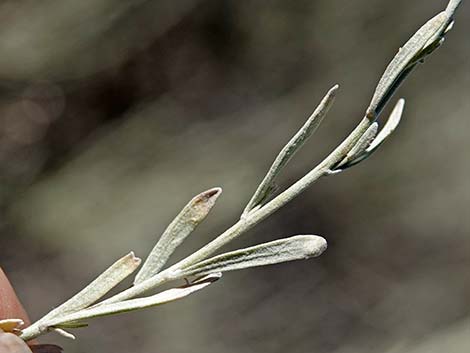 Big Sagebrush upper leaves |
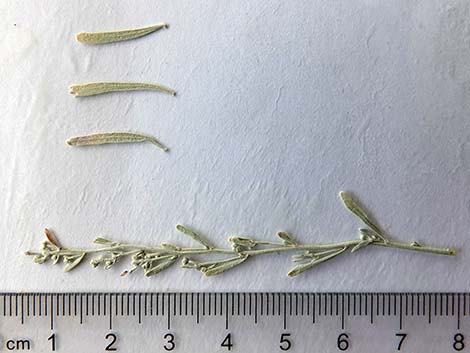 Big Sagebrush upper leaves |
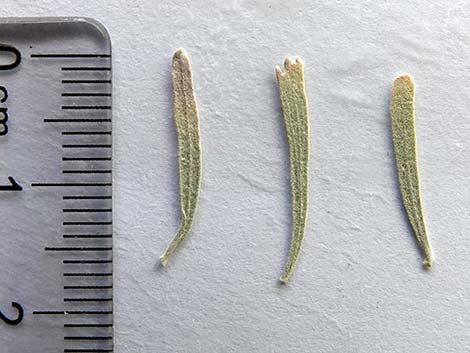 Big Sagebrush upper leaves |
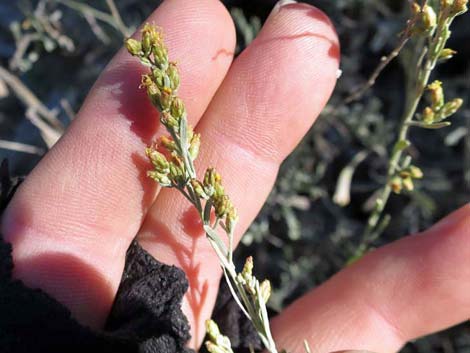 Big Sagebrush flowers |
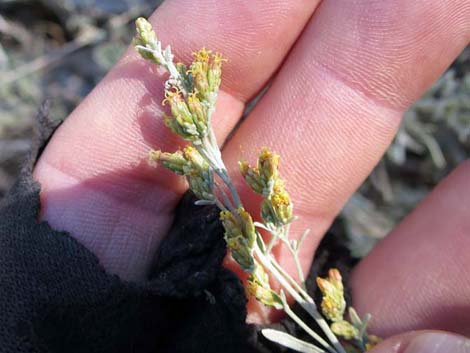 Big Sagebrush flowers |
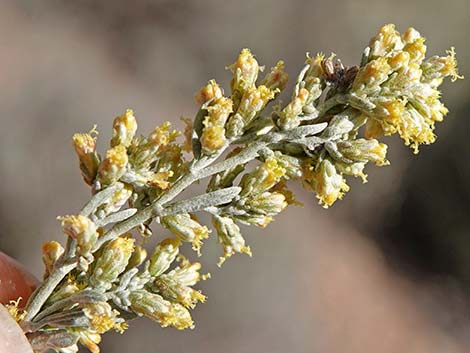 |
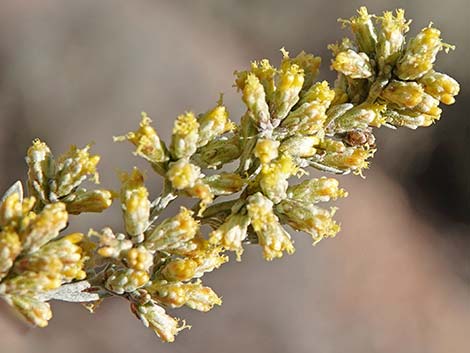 |
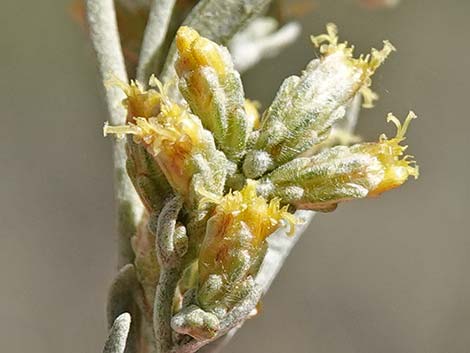 |
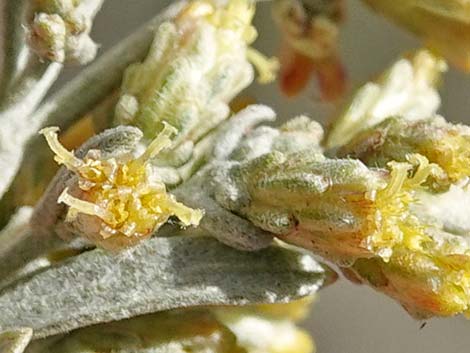 |
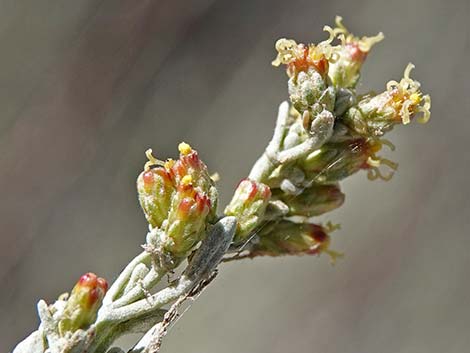 |
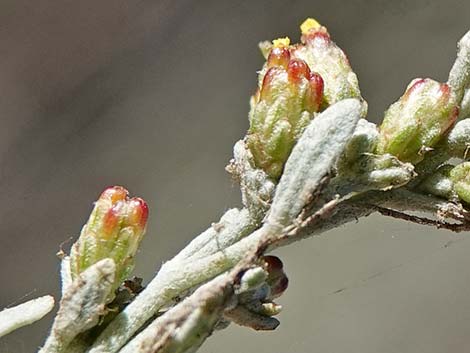 |
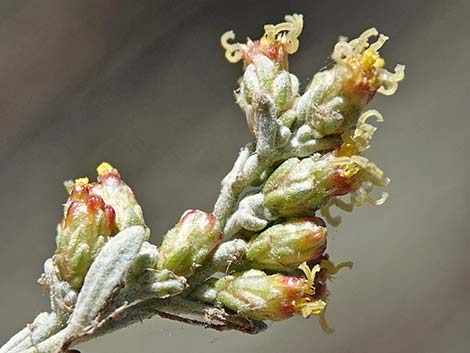 |
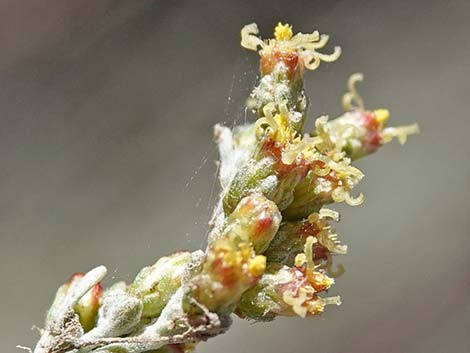 |
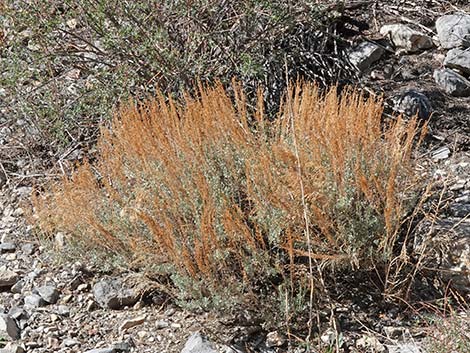 Flowerstalks become brown during winter |
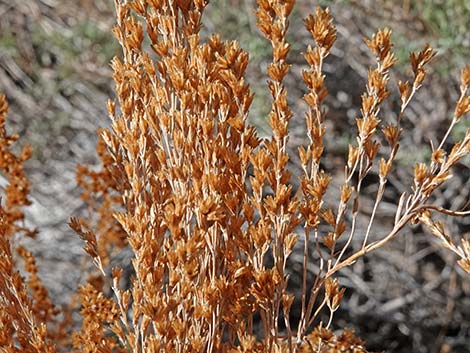 Flowerstalks become brown during winter |
Insect gall on Big Sagebrush
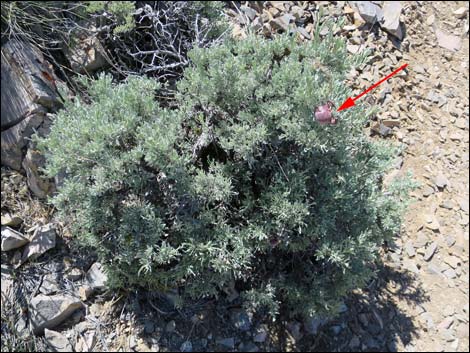 Galls from Sponge Gall Midge (Rhopalomyia pomum) on Big Sagebrush Galls from Sponge Gall Midge (Rhopalomyia pomum) on Big Sagebrush |
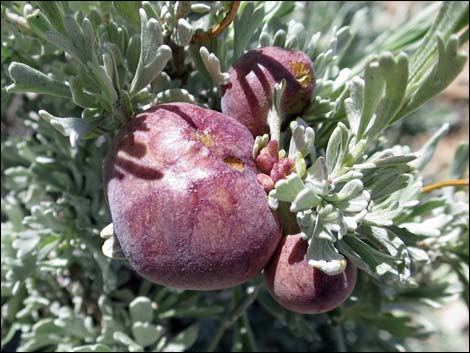 Galls from Sponge Gall Midge (Rhopalomyia pomum) on Big Sagebrush |
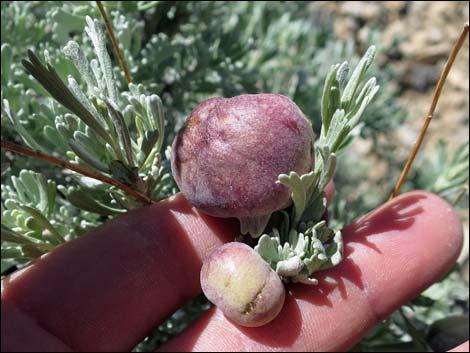 Galls from Sponge Gall Midge (Rhopalomyia pomum) on Big Sagebrush |
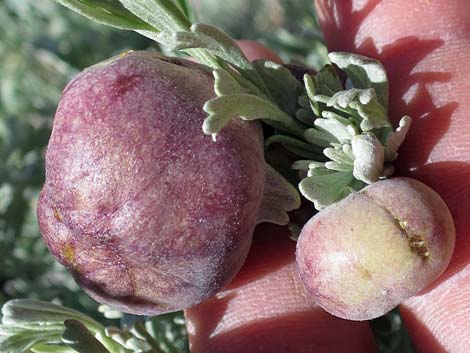 Galls from Sponge Gall Midge (Rhopalomyia pomum) on Big Sagebrush |
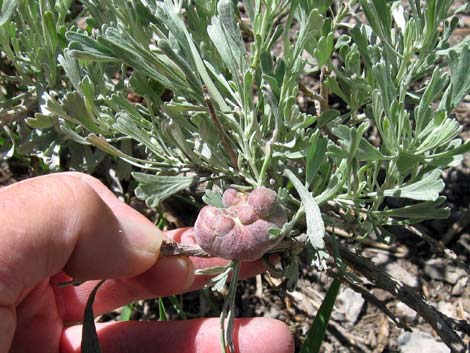 Galls from Sponge Gall Midge (Rhopalomyia pomum) on Big Sagebrush |
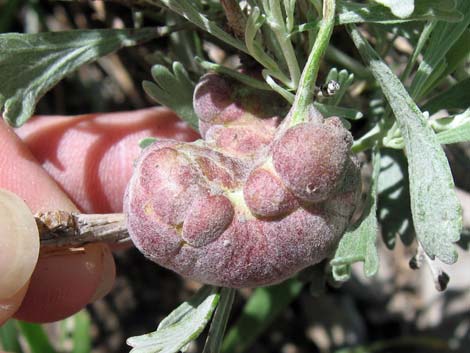 Galls from Sponge Gall Midge (Rhopalomyia pomum) on Big Sagebrush |
Note: All distances, elevations, and other facts are approximate. Names generally follow the USDA database.
![]() ; Last updated 250603
; Last updated 250603
| All Shrubs | Plant Species Index | Glossary | Copyright, Conditions, Disclaimer | Home |